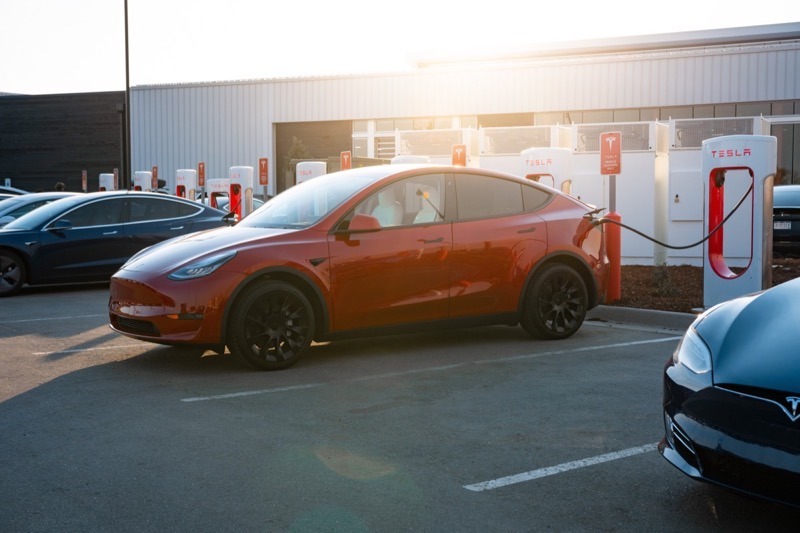
White House Proposes New Standards to Hit Goal of 500,000 EV Charging Stations by 2030

President Joe Biden’s Administration on Thursday announced a new set of standards to help meet the government’s goal of building a national electric vehicle (EV) charging network comprising 500,000 stations across the U.S. by 2030.
Chargers funded under the Bipartisan Infrastructure Law, which earmarks $5 billion USD for a national charging network, will be subject to the new regulations.
The standards are designed to deliver a consistent experience with charging speeds, user interactions, and payments to EV owners at charging stations all over the U.S. regardless of where they are or what car they drive.
“The Department of Transportation, in partnership with the Department of Energy, is proposing new standards to make charging electric vehicles (EVs) a convenient, reliable, and affordable for all Americans, including when driving long distances,” the Biden-Harris Administration said in a press release.
Under the proposed standards, government-funded EV charging stations would be required to have at least four stalls capable of simultaneously fast charging four vehicles working 97% of the time. Any stations benefitting from President Biden’s Bipartisan Infrastructure Law would also not be allowed to gatekeep charger access behind memberships.
“Everybody should be able to find a working charging station when and where they need it – without worrying about paying more or getting worse service because of where they live,” Transportation Secretary Pete Buttigieg told Reuters (via Benzinga).
Another highlight of the proposed standards is the requirement for charging stations built across the U.S. to be able to communicate and operate on the same software platforms.
In addition, a new rule proposed by the Federal Highway Administration seeks to ensure that EV owners get similar payment systems, pricing, and charging speeds at stations nationwide.
“Everyone should be able to count on fast charging, fair pricing, and easy-to-use payment,” added Buttigieg.
The Bipartisan Infrastructure Law also sets aside $2.5 billion for grants to rural areas and lower-income communities to subsidize the installation of EV charging stations.
In August 2021, President Biden signed an executive order mandating 50% of all new vehicles sold in the U.S. to be battery electric or plug-in hybrid by 2030. Last month, the White House announced an investment of roughly $3.16 billion in the production of key battery metals such as lithium, cobalt and nickel.
When it comes to charging connect standards, there’s a plethora out there including Tesla’s proprietary plug. But for DC fast charging, CCS looks to be winning the race, as even Tesla has an adapter for the latter, currently only available for purchase in South Korea–but you can click here to learn how to buy one anyway.

